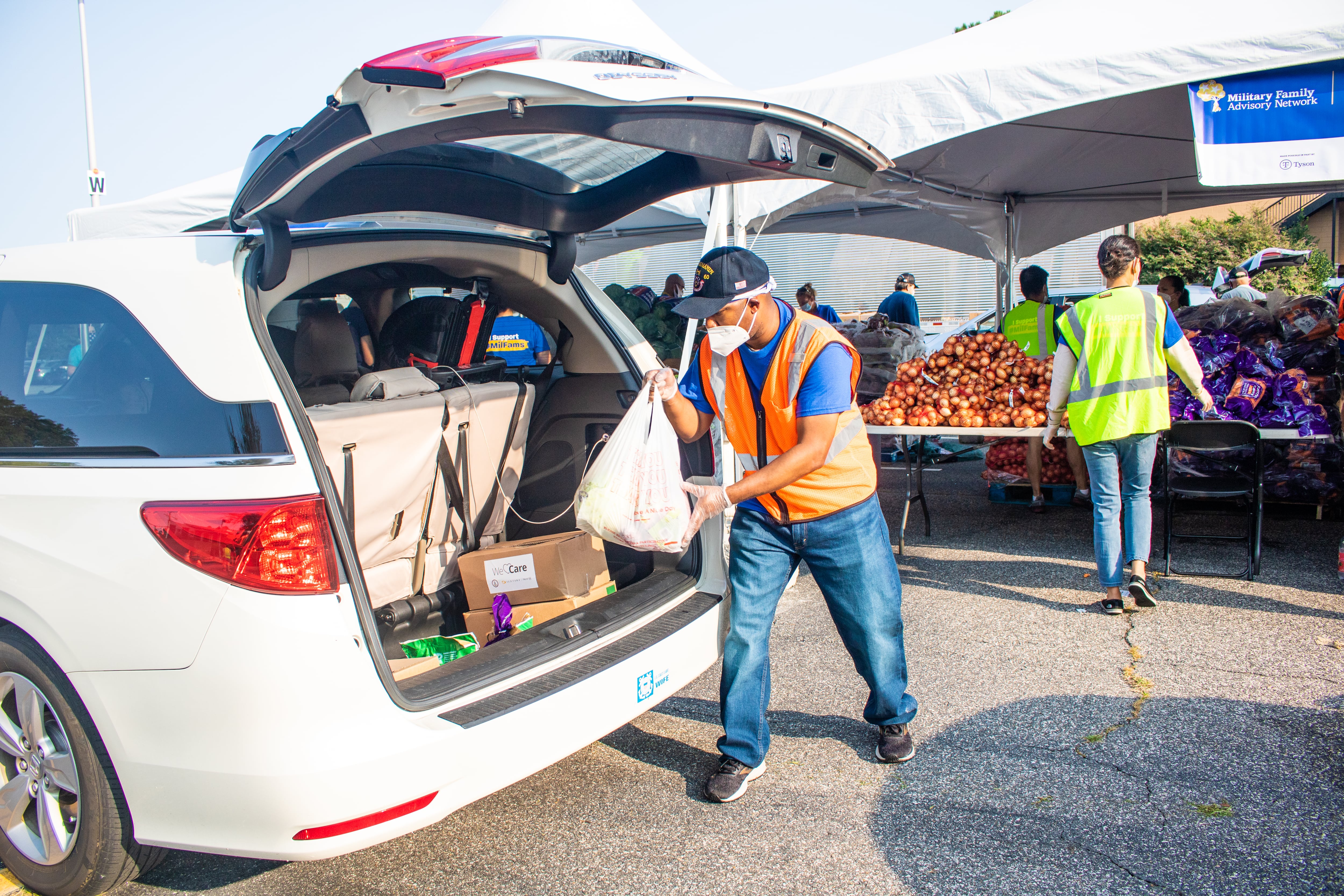Congress’ efforts to increase the number of lower-income military families who would qualify for a new allowance to address food insecurity and other basic needs are welcome, but still fall short of the need, advocates say.
In negotiations to craft a compromise 2023 defense policy bill, House and Senate lawmakers agreed to increase eligibility for the new Basic Needs Allowance by raising the family income cap to 150% of federal poverty guidelines, up from the 130% set by the 2022 law establishing the allowance. The new allowance will take effect Jan. 1. The new legislation gives the Defense Department until Jan. 15, 2024, to expand eligibility to 150% of the guidelines, although the department could implement it earlier.
Based on Defense Department estimates, the higher income cap would increase the number of active duty families who might be eligible for the allowance to 2,400 — up from the 300 who might be eligible Jan. 1 under current law and DoD regulations.
That is still less than 0.4% of the population of active duty troops with family members, based on a 2021 demographics report from DoD.
In November, defense officials issued their instructions for implementing the Basic Needs Allowance, and the services are in various stages of completing their instructions and screening service members for possible eligibility. Air Force officials told Military Times they had completed an initial screening of airmen and guardians, and found just 36 potentially qualified under the 130% guideline.
Service members must apply for the allowance, and total household income is counted when the services are determining whether to certify a service member as eligible for the allowance.
While Defense Department officials estimated that about 300 service members might qualify for the allowance under the 130% guidelines, they don’t have information on the income of spouses or other income in the household, DoD spokesman Army Maj. Charlie Dietz said. So, some of those 300 troops may not be eligible for the extra money.
The bill also gives DoD leeway to expand income eligibility to 200% of the federal poverty guidelines in certain circumstances. The guidelines are set by the Department of Health and Human Services.
RELATED

A main point of contention around the Basic Needs Allowance has been whether service members’ housing allowances would be excluded from income eligibility calculations. The Basic Allowance for Housing varies by location, but it can add thousands of extra dollars to enlisted families’ income per month.
In their recently published instruction, DoD officials agreed to exclude the housing allowance for some service members in the total income calculations — but only in high cost-of-living areas, as determined by defense officials.
Based on how the Defense Department determines high cost areas for the stateside cost-of-living allowance, known as the CONUS COLA, it appears few service members would be able to exclude their housing allowance, which would therefore bump up their income and make them ineligible for Basic Needs Allowance.
For the CONUS COLA, a high cost-of-living area is defined as any geographical area where the cost of living exceeds the average cost of living in the continental U.S. by 8% or more in a fiscal year. In 2022, DoD has designated 26 high-cost areas for the CONUS COLA.
In their defense policy legislation for fiscal 2022, Congress left the decision about the inclusion of housing allowances to defense officials. In the House version of the 2023 defense bill, BAH would have been excluded, but House and Senate negotiators agreed instead to the increase the income cap.
“For the past year, we’ve been telling Congress that the Basic Needs Allowance, while an important first step, would leave out too many military families who are struggling to put food on the table,” said Eileen Huck, government relations senior director for the National Military Family Association. “We’re glad they listened and acted to improve the Basic Needs Allowance by increasing the income eligibility threshold. However, we’re concerned that continuing to include BAH means that this assistance will still be out of reach for many families.”
According to a 2021 Congressional Budget Office estimate, excluding the Basic Allowance for Housing as income would mean that about 3,000 service members would potentially be eligible for the benefit, based on their monthly income level at 130% of the federal poverty guidelines and the size of their household.
“We need to get the policy right to fix the Basic Needs Allowance so that it provides assistance to all military families struggling with food insecurity,” said Abby J. Leibman, president and CEO of MAZON: A Jewish Response to Hunger. The bill does make some helpful improvements, she said, but by not adopting MAZON’s provision to categorically exclude the housing allowance in those income calculations, she said, “most military families at risk of hunger will continue to face barriers to assistance. …
“The minor adjustments made in the [fiscal 2023 defense policy bill] don’t go far enough to address this crisis,” Leibman said.
Karen has covered military families, quality of life and consumer issues for Military Times for more than 30 years, and is co-author of a chapter on media coverage of military families in the book "A Battle Plan for Supporting Military Families." She previously worked for newspapers in Guam, Norfolk, Jacksonville, Fla., and Athens, Ga.





